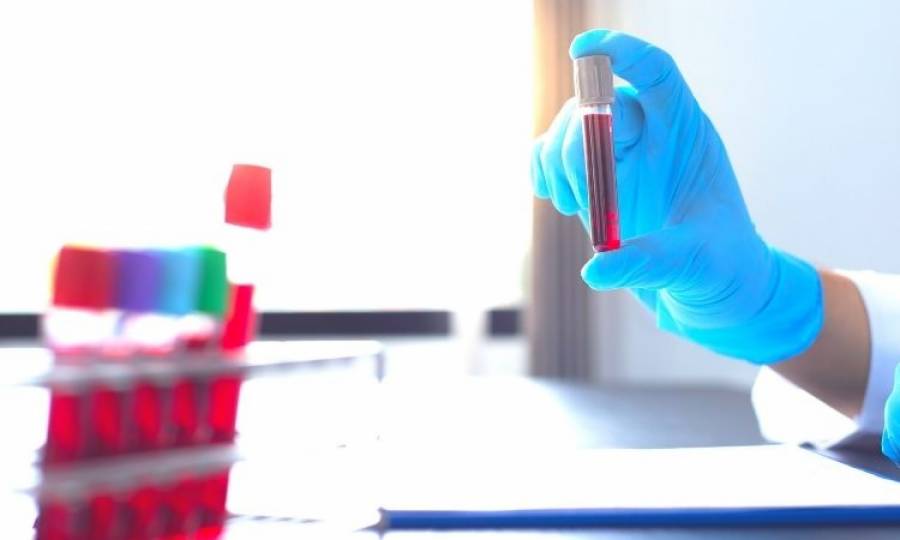Pakistan is facing increased incidence of Aplastic Anemia: Experts

ISLAMABAD: Hundreds of new cases of aplastic anaemia are reported annually in Pakistan compared to Western countries, health experts, adding that in addition to genetic causes, environmental factors, such as exposure to pesticides, herbicides, and certain medications, such as chloramphenicol, mebendazole, and radiation, could be the possible causes of the blood disease.
Aplastic anaemia is a rare blood disorder in which a person's bone marrow ceases to produce red blood cells, according to health experts, who have called for the initiation of national-level research to determine the causes of the disease's high incidence in Pakistan so that preventative measures can be taken.
Most patients cannot afford the expensive and unaffordable procedure of bone marrow transplant (BMT).
They presented at the Children's Hospital Karachi's 3rd National Symposium on Paediatric Haematology and Oncology. It was addressed by paediatric haematologists, oncologists, pharmacists, and other health specialists from various Pakistani cities.
Dr Saqib Husain Ansari, a renowned paediatric haematologist, stated that the prevalence of aplastic anaemia in Pakistan and its neighbouring countries, including India and Bangladesh, is notably higher than in Western nations. Environmental causes, including the excessive use of pesticides and herbicides, exposure to petroleum products, radiation, and self-medication, were cited as the cause of this condition.
Dr Ansari stated, about thalassemia, that despite the enactment of legislation for the prevention of thalassaemia in the Sindh province, weddings continued to take place without the genetic testing of both the bride and the groom. He believed that adopting the law would avoid the birth of hundreds of children with inherited blood diseases.
According to eminent pharmacist Umaima Muzammil, the usage of some drugs banned in the industrialised world, such as the antibacterial pill chloramphenicol, is also linked to a high frequency of aplastic anaemia. She requested the Pakistani Drug Regulatory Authority cease manufacturing and distributing harmful medications.
Prof. Jalal Akbar, a renowned paediatrician, stated that every year in Pakistan, hundreds of children are born with thalassaemia, a preventable condition, and he asked for the application of legislation and the creation of public awareness to avoid the birth of thalassaemic children.
Prof. Dr Farrukh Ali Khan, the head of clinical haematology and bone marrow transplantation at the Dow University of Health Sciences (DUHS), stated that the Western world and several other nations have eradicated thalassaemia from their soils and are now employing those resources to treat blood cancers. He advocated for an emphasis on thalassemia and other avoidable illnesses.
Dr Farrukh stated that the prevalence of Aplastic Anemia was high in Pakistan but that specialists in the nation had failed to discover the causes for this high frequency. He noted that perhaps there was something wrong with the nutrition of the people in the region, but a significant investigation was required to manage this sickness.
Dr Zubair Shaikh, president of Muhammad Ali Jinnah University in Karachi, Dr Uzma Zaidi of the NIBD, Dr Tariq Ghafoor of the Armed Forces Bone Marrow Transplant Centre in Rawalpindi, Dr Mohsina Ibrahimk of the National Institute of Child Health in Karachi, and Dr Akbar Nizamani of the LUMHS in Jamshoro were among the other speakers.
Advertisement
Trending
Popular
Aging: New study identifies key lifestyle, environmental factors ...
-
Hair loss: Discovery uncovers key stem ...
08:00 PM, 25 Feb, 2025 -
Broccoli sprout compound may help lower ...
11:31 AM, 25 Feb, 2025 -
Gas Pain vs. Heart Attack: How to tell ...
09:00 PM, 22 Feb, 2025 -
Coconut oil supplement shows promise ...
08:00 PM, 20 Feb, 2025



